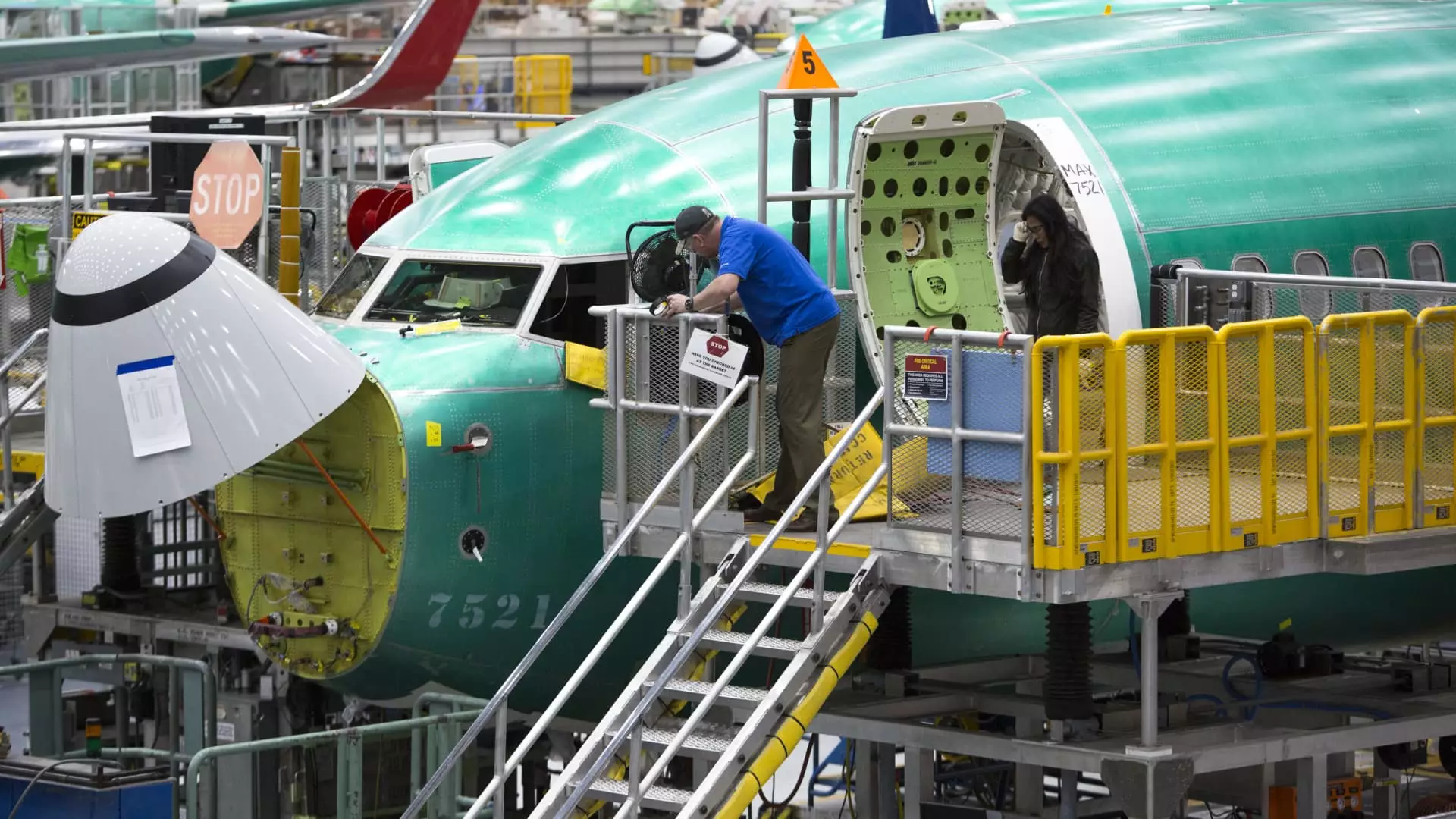In a significant development for the aerospace industry, Boeing workers are faced with a crucial decision as they cast their votes on a new labor contract. This vote, taking place on a Thursday, carries implications not only for the employees’ immediate financial futures but also for the operational stability of the company during a crucial production ramp-up. The urgency of this vote is underscored by the possibility of a strike, which could be catastrophic for Boeing as it struggles to regain its footing amid past operational setbacks.
As news circulated about the tentative agreement between the International Association of Machinists and Aerospace Workers (IAM) and Boeing, workers were presented with a proposal that includes substantial wage increases and enhancements to healthcare and retirement benefits. The agreement promises a 25% wage increase, a contentious point considering the IAM’s initial demand for a 40% raise. This difference of opinion reflects broader labor trends seen across various sectors, as unions increasingly push for better compensation in response to rising inflation and changing economic conditions.
CEO Kelly Ortberg, in just his second month in the role, faces intense pressure to bridge the salaries and morale gap created over the years. In a letter to staff, he emphasized the necessity of looking forward instead of getting bogged down by past grievances. His cautious tone reveals an understanding of the emotional weight this decision carries among employees. Ortberg has reached out to the workforce through various meetings in key locations, seeking to assure them of the benefits of the current proposal.
Critically, Ortberg recognizes that the timing of this vote arrives at a precarious juncture for Boeing, which has been plagued by quality lapses and safety concerns, including a notable incident involving a door-panel blowout earlier in the year. His efforts to reinforce a message of unity could be seen as an attempt to quell dissatisfaction and refocus attention on collective recovery—an ambitious goal that may not resonate with all employees, given the backdrop of systemic issues within the company.
The IAM leadership, including District 751 President Jon Holden, articulated a rationale for recommending the acceptance of the proposed contract. Holden’s statement reflects a strategic pivot, acknowledging the precariousness of labor negotiations in today’s economic environment. The union is poised in a delicate balance, suggesting that while the offer may not meet all their initial demands, accepting it could prevent a more significant and potentially damaging standoff. However, this invites scrutiny; are they playing it too safe at the expense of fighting for more robust worker rights?
The statistics, while compelling—projecting an increase that could bring the average machinist’s salary from approximately $75,608 to $106,350 by the end of the four-year contract—are framed by the stark request for greater percentages. This disparity invites employees to question the value and effectiveness of this negotiation.
The stakes are high—not just for employee salaries and benefits but for Boeing’s entire operational framework. If the contract receives a thumbs down from the workforce, and two-thirds vote in favor of a strike, then operations could halt as soon as midnight on Friday in Washington state. Such a work stoppage would not only impair Boeing’s recovery but could also amplify existing grievances among workers and clients alike, as Ortberg himself noted.
On the other hand, if a simple majority rejects the new deal and less than two-thirds support a strike, the contract will automatically come into effect, a scenario laden with conflicting sentiments about the bargaining power of labor in the current market landscape.
As polls are poised to close, the ramifications of this vote stretch far beyond the walls of Boeing. They reflect the ongoing battle between labor and management in an economy still recovering from fluctuations that have shaken numerous industries. The outcome will not only dictate wages and working conditions at Boeing but could also serve as a bellwether for labor relations in America. The tentative agreement presents a crossroads—a point where the aspirations of the workforce must reconcile with corporate realities, and the decisions made today will undoubtedly shape Boeing’s future for years to come.

